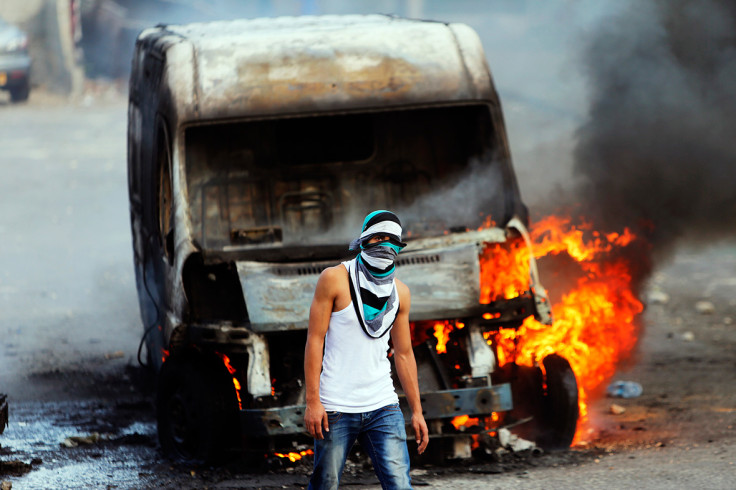Jerusalem Intifada: Communal Violence in Holy City is Worrying Escalation

The suspected terrorist attack in Jerusalem in which a Palestinian man drove into several pedestrians in East Jerusalem wounding at least three people is just the latest of a string of violent incidents that have engulfed the holy city since last summer.
Dubbed as silent intifada, or simply the Jerusalem Intifada, in reference to the Palestinian uprisings against Israeli occupation in 1987 and 2000, the unrest and rioting has become a daily occurrence since the brutal killing of a Palestinian teen in July. The burnt body of Mohammed Abu Khdeir, 16, was found in a Jerusalem wood, allegedly in retaliation against the kidnapping and killing of three Israeli teenagers on the West Bank.
The slaughter of Khdeir had an appalling effect on the already traumatised Arab population in occupied East Jerusalem, triggering nightly riots with Palestinians hurling rocks and petrol bombs at police, who responded to violence with teargas and water cannons.
Plans to expand Jewish settlements beyond the Green Line, in defiance to international law and EU and US pressure, further angered the local Arabs and steadily destroyed policy of Jerusalem Mayor Nir Barkat, who helped promoting tourism and restoring a sense of security in the city after the second intifada.
Clashes also erupted at the flashpoint hilltop site known as Haram al-Sharif (The Noble Sanctuary) among Muslims and Temple Mount to Jews, which includes the al-Aqsa mosque.
Right-wingers have stormed the site several times and campaigned to overturn the status quo imposed after Israel's occupied Jerusalem's Old City in 1967 which forbids Jewish prayers at al-Aqsa. The Second Intifada in 2000 began after a visit by the late ex-PM Ariel Sharon to the site, which has been administered by an Islamic Waqf (trust), under the authority of Jordan, since the crusades.
Last week a Palestinian convicted members of the Islamic Jihad shot and wounded Yehuda Glick, a far-right settler rabbi who lobbied for greater Jewish access to Temple Mount.
After the attempted Glick assassination, Israel sealed off the Al-Aqsa site enraging Palestinians and causing their president Mahmoud Abbas to say that the closure of Islam's third holiest site was "almost a declaration of war".
Earlier in October, a three-month-baby girl and a tourist from Ecuador died in a hit-and-run attack at a light rail station. Following the incident, 21-year-old Abdel Rahman al-Shaludi, from East Jerusalem, was shot and killed by Israeli police as he fled the scene on foot.
Palestinian militant group Hamas defended Shaludi's action as an "act of heroism" against the "[Israeli] occupation against our people and our holy places" and warned of a new Palestinian intifada.
In the latest update, Jordan has recalled its envoy to Israel over al-Aqsa clashes. Israeli forces clashed with Palestinian demonstrators after police stormed the al-Aqsa mosque trying to remove them.
The return of Temple Mount - the holiest site in Judaism and Islam's third holiest site - at the heart of communal violence is a bad omen for peace hopeful of the Israeli-Palestinian conflict.
© Copyright IBTimes 2025. All rights reserved.






















